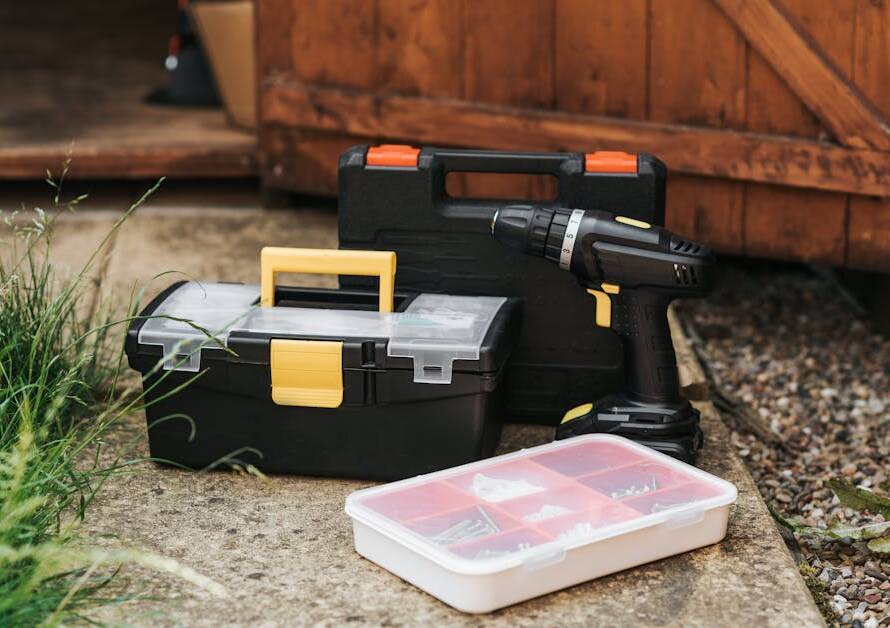In the quest for a healthier living environment, understanding air quality testing is crucial. Air quality testing in Coeur d’Alene involves a comprehensive assessment of the indoor and outdoor air to identify pollutants and allergens that could potentially affect your family’s well-being. By conducting these tests, homeowners can detect various contaminants such as mold spores, volatile organic compounds (VOCs), carbon monoxide, and radon, which are often invisible to the naked eye but can have a significant impact on health.
Air quality testing is not just about identifying problems; it’s about preventing health issues. Poor air quality can lead to respiratory problems, allergies, and even long-term health conditions. With the increase in environmental concerns, ensuring that the air you breathe is clean and safe has never been more important. This testing process typically involves using specialized equipment to collect air samples, which are then analyzed in a lab to determine the presence and concentration of harmful substances.
For residents of Coeur d’Alene, understanding these tests and their significance can be a game-changer for maintaining optimal health. As a family-owned business, at Brothers, we understand the importance of treating customers like family, ensuring their homes are safe havens. If you’re looking to improve your home’s air quality, call 208 Flooded or visit our website at www.brothersresto.com to learn more about our services and how we can help you breathe easier.
Importance of Air Quality in Coeur d’Alene

The importance of air quality in Coeur d’Alene cannot be overstated, as it directly impacts the health and well-being of its residents. Situated amidst scenic landscapes and surrounded by natural beauty, Coeur d’Alene offers a tranquil living environment. However, like many areas, it is not immune to air quality issues. Various factors, including industrial activities, traffic emissions, and seasonal changes, can contribute to poor air quality, posing risks to the community.
Good air quality is essential for maintaining not only physical health but also mental well-being. Exposure to pollutants can lead to respiratory issues, cardiovascular problems, and exacerbate existing health conditions such as asthma and allergies. Moreover, poor air quality can reduce cognitive function and overall productivity, affecting daily life and work efficiency.
In Coeur d’Alene, seasonal shifts bring about unique challenges. During the winter months, the use of heating systems might increase indoor pollution levels, while summer can bring allergens and wildfire smoke. Understanding and monitoring air quality helps mitigate these risks by empowering residents to take proactive measures. From installing air purifiers to ensuring proper ventilation, there are several steps that can be taken to improve air quality.
By prioritizing air quality, residents of Coeur d’Alene can enjoy the full benefits of their beautiful surroundings while safeguarding their health. It highlights the need for regular air quality testing as a preventive measure, ensuring that any potential issues are identified and addressed promptly.
Common Air Pollutants in Coeur d’Alene
.jpg)
Understanding the common air pollutants in Coeur d’Alene is crucial for addressing air quality concerns effectively. These pollutants can originate from various sources, impacting the environment and human health. Here are some of the most prevalent air pollutants in the area:
- Particulate Matter (PM): Comprising tiny particles suspended in the air, particulate matter is a significant concern. It can originate from construction sites, unpaved roads, and vehicle emissions. In Coeur d’Alene, wildfires can also contribute to elevated levels of PM, affecting air quality dramatically.
- Ozone (O3): While ozone in the upper atmosphere protects us from harmful ultraviolet rays, ground-level ozone is a harmful pollutant. It forms when nitrogen oxides (NOx) and volatile organic compounds (VOCs) react in sunlight. This pollutant is often exacerbated by hot weather conditions, which Coeur d’Alene experiences in the summer.
- Nitrogen Dioxide (NO2): A byproduct of combustion processes, nitrogen dioxide is primarily emitted from vehicles and industrial activities. It contributes to the formation of smog and acid rain, posing respiratory risks to the local population.
- Carbon Monoxide (CO): This colorless, odorless gas is produced from burning fossil fuels. In Coeur d’Alene, sources include vehicles, gas appliances, and wood-burning stoves, particularly during the colder months.
- Sulfur Dioxide (SO2): Mainly emitted from industrial processes, sulfur dioxide can also come from natural sources like volcanoes and wildfires. It contributes to the formation of fine particulate matter and poses health risks, especially to those with preexisting respiratory conditions.
Recognizing these common pollutants enables residents and local authorities to implement strategies to reduce exposure and improve air quality, ensuring a healthier environment for the Coeur d’Alene community.
Benefits of Regular Air Quality Testing
Regular air quality testing in Coeur d’Alene offers numerous benefits, playing a pivotal role in maintaining a safe and healthy environment for you and your family. Understanding these benefits can help you make informed decisions regarding your living and working spaces.
Firstly, air quality testing provides valuable data on the presence and concentration of various pollutants in your surroundings. This information is crucial for identifying potential sources of pollution, allowing for targeted actions to mitigate their impact. Whether it’s addressing mold spores, reducing chemical emissions, or minimizing allergens, knowing what you’re dealing with is the first step toward improvement.
Another significant advantage of regular testing is the protection of your family’s health. Poor air quality can lead to respiratory issues, cardiovascular problems, and aggravated allergies, especially in vulnerable individuals such as children and the elderly. By identifying hazards early, you can take proactive measures to ensure the air you breathe is clean and safe.
Moreover, maintaining good air quality enhances overall well-being and productivity. Clean air contributes to better sleep, increased focus, and reduced stress levels, which are essential for both personal and professional settings. For businesses in Coeur d’Alene, this means a healthier, more efficient workforce.
Lastly, regular air quality testing can increase property value. Homes and buildings with documented healthy air quality are more attractive to potential buyers or tenants, providing peace of mind and a competitive edge in the market.
In summary, the benefits of regular air quality testing extend beyond health, impacting your quality of life and financial well-being. Prioritizing this practice is an investment in a safer, healthier future.
How Air Quality Testing is Conducted

Understanding how air quality testing is conducted in Coeur d’Alene is essential for homeowners and business owners aiming to ensure a safe environment. The process involves several key steps, each designed to provide comprehensive insights into the air you breathe.
Initially, professionals start with a thorough inspection of the premises. This involves identifying potential sources of pollutants, such as ventilation systems, building materials, or areas prone to moisture accumulation. The inspection helps in tailoring the testing approach to the specific needs of the location.
Next, sampling devices are strategically placed throughout the property. These devices are designed to collect air samples over a set period, capturing a snapshot of the indoor air composition. Common pollutants tested include volatile organic compounds (VOCs), mold spores, carbon monoxide, radon, and particulate matter.
After the sampling phase, the collected data is analyzed using advanced laboratory techniques. This analysis provides detailed information about the types and concentrations of pollutants present. The results are then compiled into a comprehensive report, highlighting the air quality status and any areas of concern.
Professionals also offer recommendations based on the findings. This might include steps for remediation, such as improving ventilation, using air purifiers, or addressing specific contamination sources. By following these recommendations, property owners can effectively enhance their indoor air quality.
Overall, the testing process is designed to be thorough and informative, empowering individuals with the knowledge needed to make informed decisions about their environment. By understanding how air quality testing is conducted, you can better appreciate its role in safeguarding health and well-being.
Choosing the Right Air Quality Testing Service

When it comes to ensuring the health and safety of your home or business in Coeur d’Alene, selecting the right air quality testing service is crucial. With numerous options available, it can be a daunting task to choose the best service that meets your specific needs. Here are some important factors to consider.
Firstly, look for a company with a strong reputation and extensive experience in the field. A well-established service provider is more likely to have a proven track record of delivering accurate and reliable results. Check for certifications and affiliations with recognized environmental and health organizations, which can be indicators of a company’s credibility and expertise.
Secondly, consider the range of testing services offered. A comprehensive air quality testing provider should be able to assess various pollutants, including mold, asbestos, VOCs, and allergens. Ensure that the company utilizes state-of-the-art equipment and follows up-to-date testing protocols to ensure precise outcomes.
Customer service is another critical aspect. Choose a service that offers clear communication, transparency, and detailed reporting. They should be willing to explain the testing process, findings, and recommendations in a way that is easy to understand. This is essential in making informed decisions about improving your indoor environment.
Finally, consider the cost and value of the services provided. While it might be tempting to choose the cheapest option, it’s important to weigh the cost against the quality and breadth of services offered. Investing in a reputable air quality testing service is an investment in your health and peace of mind.
By carefully evaluating these factors, you can select an air quality testing service that will provide you with the insights needed to enhance your indoor environment. If you’re ready to take the next step in ensuring the air quality of your home or business, call 208 Flooded or visit our website at www.brothersresto.com to learn more about how we can help.



